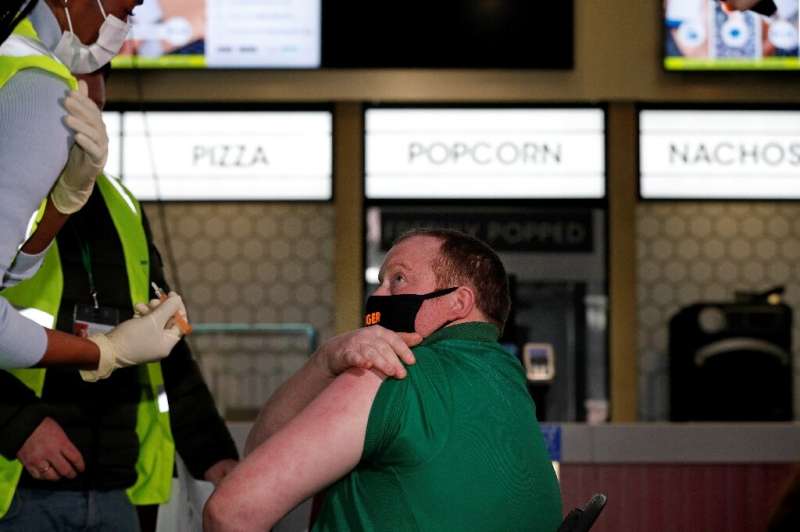

AstraZeneca announced Thursday it had doubled its annual profit in 2020 as the World Health Organization approved its coronavirus shot for over-65s, boosting the global immunisation effort against COVID-19.
Mass vaccination programmes are being ramped up in many countries, but have been hampered by limited supplies as rising infections force governments to tighten virus restrictions.
AstraZeneca was at the centre of a diplomatic spat between the EU and Britain earlier this year over supply problems, and also faced a setback when a number of European nations did not authorise its coronavirus shot for the over-65s—the demographic most vulnerable to COVID-19.
“Despite the significant impact from the pandemic, we delivered double-digit revenue growth,” CEO Pascal Soriot said as the firm announced a net profit of $3.2 billion in 2020. “The progress of the COVID-19 vaccine demonstrated what we can achieve.”
The results did not include the impact of its coronavirus vaccine. The firm said it would report those figures separately.
The WHO backed AstraZeneca’s coronavirus shot on Wednesday—including for over-65s and in places were new coronavirus variants are circulating.
“It is likely that the vaccine will be found to be efficacious in older persons. The trial data indicate that the vaccine is safe for this age group,” said WHO expert Alejandro Cravioti.
He said the WHO was awaiting more specific data on the vaccine’s efficacy in over-65s, but that it “would not be appropriate” to wait with “thousands of people dying”.
The AstraZeneca shot forms a bulk of doses being rolled out around the world—especially in poorer countries—under the Covax programme, and is considered crucial to the fight against the pandemic which has claimed more than 2.3 million lives.
WHO chief scientist Soumya Swaminathan said the benefits of using the AstraZeneca shot would “far outweigh” any risks even in nations with new variants.
‘We are suffocating’
Faced with a scarcity of supplies, many governments have given approvals to multiple vaccines.
Mexico on Wednesday authorised shots made by the Chinese firms CanSino Biologics and Sinovac, following its green light for the Pfizer-BioNTech, AstraZeneca and Sputnik V jabs.
The hard-hit Latin American nation’s healthcare system has struggled to cope, and with hospitals focused on dealing with COVID-19, neighbourhood doctors have had to deal with the overflow—and they want to be among the first to get coronavirus shots.
“I want to keep working and supporting my community,” said Karla Montano.
“But I need to be vaccinated so I can continue working without putting my family at risk.”
The European Union is also trying to accelerate its vaccination programme, with some member states still tightening economically punishing restrictions to stop the spread of the virus.
Germany extended its strict curbs until March 7, while Greece on Thursday began a tightened lockdown in and around its capital region.
“We are suffocating,” read a banner at a rally against the restrictions in Athens.
‘I haven’t been home in a long time’
More than 107 million people are known to have been infected by the coronavirus, which first emerged in China in late 2019.
While the Chinese government has largely suppressed its outbreak and kickstarted its economy, tough restrictions have remained to prevent a resurgence—such as testing and quarantine requirements, even for domestic travellers.
That has hit travel plans for the millions who head home to see family over the Lunar New Year holidays.
Some decided to take on the inconvenience.
“I haven’t been home to see my children for a long time,” Li Xinjun, a 50-year-old housekeeper, told AFP outside the Beijing railway station.
Despite the heavy toll of the pandemic, a retirement home in the French city of Toulon was set for a unique celebration—the 117th birthday of Sister Andre, Europe’s oldest person.
She survived COVID-19 last month, one of the 81 residents of the home infected by the virus.
Source: Read Full Article